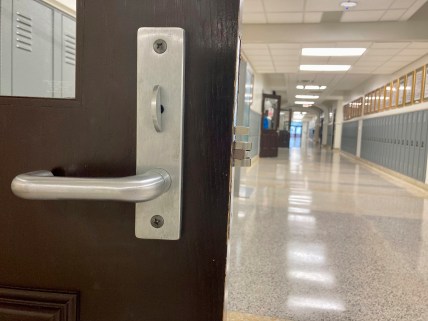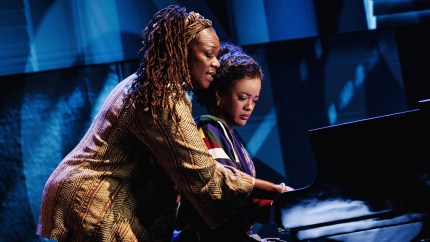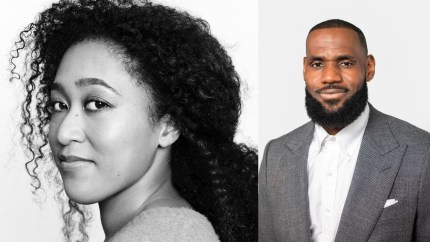Black parents rally in Washington, D.C., to demand change in schools
Speakers seek more school choice and solutions to shootings and bullying.
On the steps of the Lincoln Memorial in Washington, D.C., mothers in coats, gloves, and yellow scarves gathered to demand change in the United States’ current education system.
From the rally’s podium, speakers and organizers called for solutions, advocating for schools safe from shootings and bullying, the dismantling of the school-to-prison pipeline, and more options for families when it comes to school choice.
“Our whole purpose is to bring mothers together from across the nation, from all walks of life, to address our concerns about what’s going on in our schools,” Janelle Wood, founder of Black Mothers Forum, told theGrio.
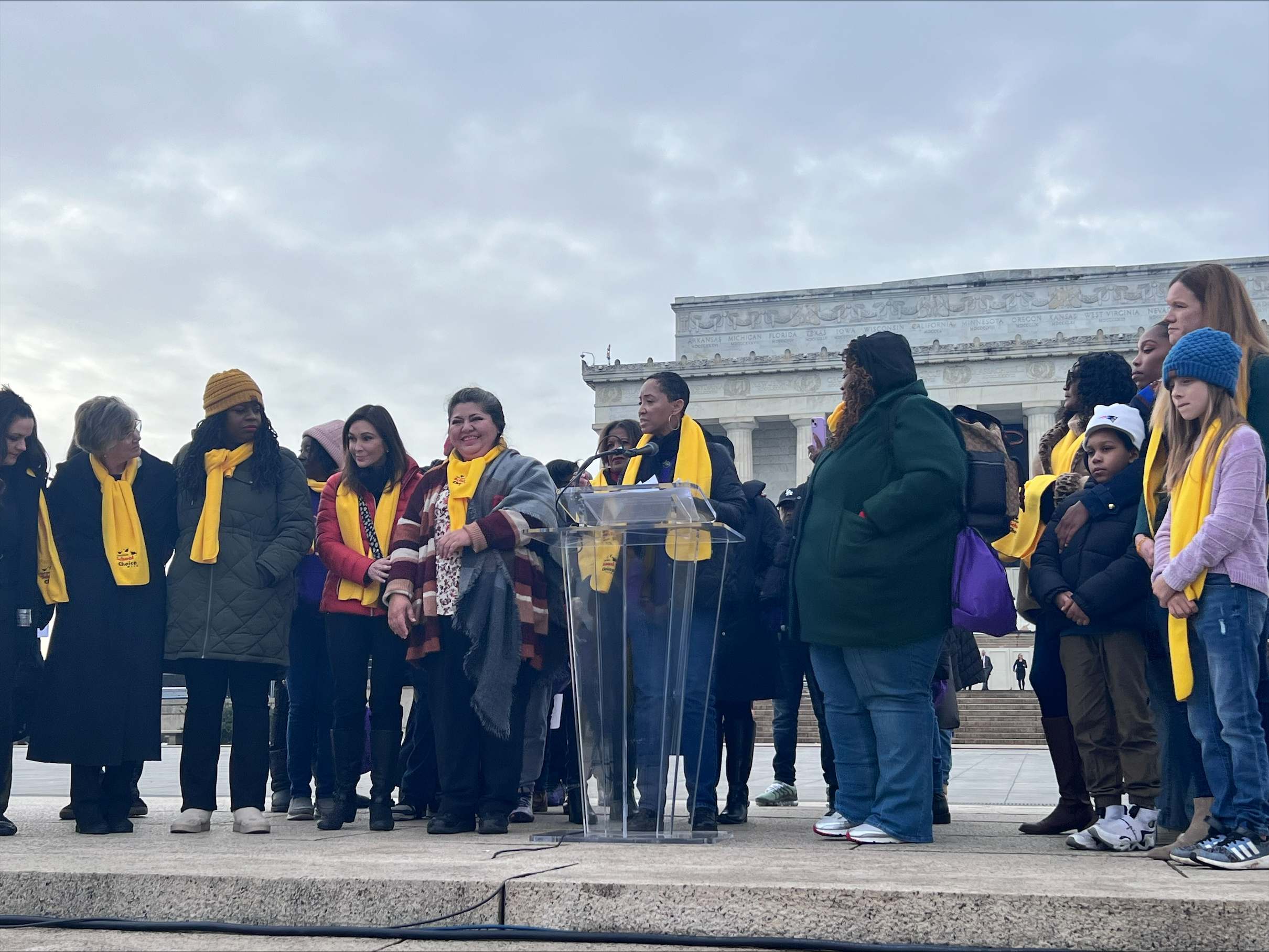
“Many of our children are not feeling safe, nor are they feeling supported in their traditional public schools. And their parents should have the right to put that child in a learning environment that best suits their learning needs and their social-emotional needs. And unfortunately, in many of our states, we’re still struggling to get that done.”
Hosted by the Black Mothers Forum, the rally is the organization’s kickoff event of the year, unveiling a call to action for parents to advocate and educate others on making crucial decisions in their children’s education. The rally, which took place during National School Choice Week, is one of more than 100 celebrations in D.C. and nationwide. Participating states hosted their celebrations at their capitols.
Wood said parents are taking their seats at the table this year.
“What we find way too often is that parents are excluded from conversations regarding curriculum … and conversations regarding what are the best social-emotional tools needed to help their children in (their respective) settings. We are excluded from conversations regarding funding and how that funding is being used.” We [Black and brown parents] “many times don’t even feel welcome going into those schools,” she said.
Wood, a Phoenix-based minister, described how Arizona offers the option to use an “Empowerment Scholarship Account” of approximately $7,000 per student, giving parents more flexible options in where their child attends school.
“We want whatever school environment works best for that child … every child does not thrive in a traditional public school setting, and that’s OK,” Wood noted. “The children that do, let them stay. But there are some children that need a smaller environment; they need a little bit more special attention. So allow them to go there, and [do] not put up barriers and not demonize the parents.”
The idea is that every parent should have the choice to send their child to public, private, charter, or micro-schools instead of providing those options only to those who can afford them. If each child is allotted a specific dollar amount to leverage for their annual education, they should be able to leverage it wherever their parents feel they most need it.
In her speech, Alisha Gordon said, “School choice is the great interrupter for single moms.”
Gordon founded The Current Project, an organization supporting Black single mothers toward economic stability. Ideally, a single parent with a voucher can put that voucher toward a private school education their child may not otherwise be able to receive. For years, school vouchers worked exactly this way, designated exclusively for low-income families, those in low-performing school districts, or for students with disabilities.
After widespread school shutdowns due to COVID-19 and the rise of online schooling, several states opened their voucher programs to families of any income, with West Virginia becoming the first in 2021. Arizona voted to implement vouchers in 2022. By the end of 2023, largely spurred by opposition to the perceived threat of critical race theory in U.S. classrooms, seven more conservative states had opened their programs.
Critics are concerned by the privatization of public schools and the lack of separation between church and state, especially because many of the private schools that parents are choosing are parochial schools. Others worry that private schools are not required to adhere to the same government standards and testing, so they could be low-performing without parents knowing.
Wood expressed her full support for educators and public schools and is looking for leaders in education who are willing to voice their support for school choice.
“I’ve met some amazing administrators that have beautiful hearts, and they’re doing the work,” she said. “They’re listening to the parents. They bring us in, and they try to implement those changes that we’re suggesting.”
Recommended Stories
Wood noted that oftentimes, the challenge lies with administrators or school boards that are too focused on the dollar amount attached to each child and the bureaucracy involved — she believes these people have lost sight of the children. She added that “It’s complicated” is not an acceptable answer when it comes to why funding cannot be used in ways that reinforce and support parents’ choices in their children’s education.
On Wednesday, Wood spoke alongside fellow reform advocates, including Bernita Bradley of Engaged Detroit, Jeanne Allen of Center for Education Reform, Stacey Brown of Education for All, and the former superintendent of public instruction for Arizona, Lisa Graham Keegan.
“It was a truly awe-inspiring experience to stand shoulder to shoulder with these education pioneers who have laid the foundation for us to persist in our efforts toward education reform,” Wood said. “They have metaphorically passed the torch to us, and it’s now our time to carry it forward. As we embark on this journey, it’s essential for the new waves of moms to lead the charge and drive this mission onward.”
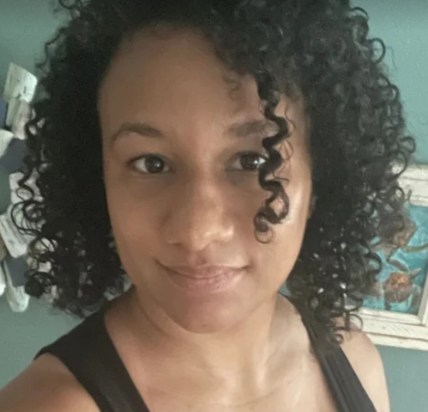
Aja Hannah is a writer, traveler, and mama. As secretary of the Society of America Travel Writers: Central States Chapter, she prioritizes travel with an ecotourism or human-first focus. She believes in the Oxford comma, cheap flights, and a daily dose of chocolate.
Never miss a beat: Get our daily stories straight to your inbox with theGrio’s newsletter.
